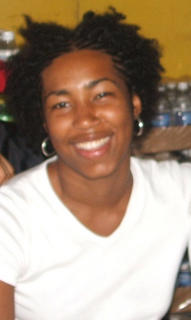Creole and Kriol and Pidgin

“It's a good thing you're Jamaican,” Foly told me at Asiko's last show at Gureje. “None of the girls we auditioned sound right singing in pidgin.”
Belizean – not Jamaican - get it right, Foly, I thought. But it was an honest mistake. Most Belizeans speak an English that’s not far off from Jamaican patois. My grandfather's father migrated from Jamaica to Belize sometime in the late 1800s. Like most Kriol Belizeans my family traces its roots to Jamaican and British mahogany lumberers and their slaves, who came to Belize from as early as the mid 18th century. If only I were a linguist, or a time traveler, I'd trace our migration, word by word.
My friend Eddie wanted me to explain the Belizean word for Creole. Creol, or Kriol, is the English, Spanish, West African and indigenous derived language most Belizeans speak. As I imagine it was in Haiti, the English-based dialect was code for how an English-speaking colonial black-mixed-race people came to define themselves. To distinguish themselves from their brothers the Garifuna (Arawak/Carib/West African originated people) who had been cast out by the British, as well as fromtheir Mayan descendents and their Mestizo neighbors, Belizean Creol took on a cultural identity of their own. So Kriol became the dominant culture in a country wedged in between Latin America and the Caribbean, between tamales and tea and rice and beans. (You can check out Eddie's blog here.
When I hear a French-speaking person say creol, I think of Haitian patios – the words seem interchangeable. But if I were in Venezuela, I might think of Papiamento, a Creole language with mixed African, Spanish roots. In Belize, I'd think of the language, the black people who speak it and their history of colonization and miscegenation.
I promised myself that I wouldn't turn into an anthropologist, at least not just yet. But I can't run away from a nagging question. How can those of us who want to know more about our history get the rest of us on board? People of color (by this I mean black and brown) have so much history in common, but we haven't seen a Trans-Atlantic Diaspora social or cultural movement since the early part of this century, when folks traveled by boat for days to London or Paris to meet with Marcus Garvey followers from all over the world. Now the color lines have shifted and and the global economy has us consumed with chasing pennies to get ahead. But we all know that though the country and city borders have shifted, the color lines remain.
For me, the question of black and brown togetherness keeps nagging. It is what has inspired my latest trip to Belize. I'll send pictures of what I've been up to soon.

